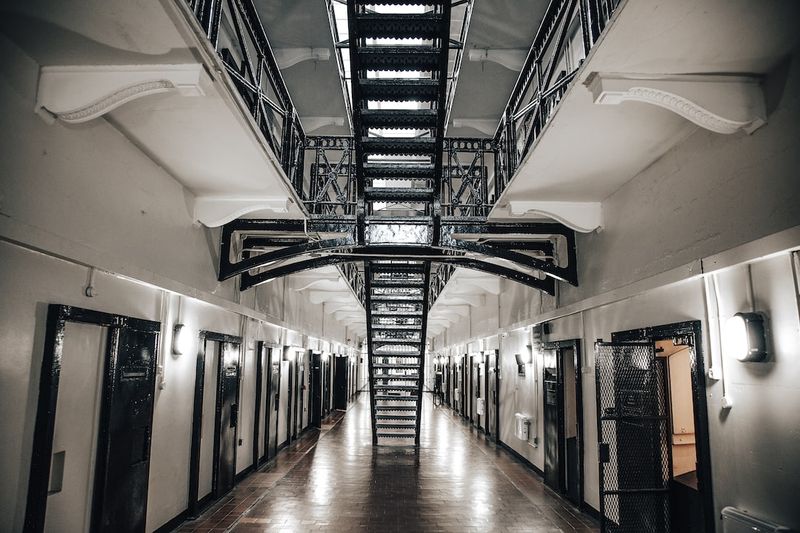Spectacles Musique: Lizzo Faces Sexual Harassment and Hostile Work Environment Lawsuit
Allegations of Sexual Harassment and Hostile Work Environment
The renowned music superstar Lizzo is currently facing a civil lawsuit filed by three of her former dancers, who accuse her of sexual harassment and creating a hostile work environment. According to the allegations made by the plaintiffs, Lizzo allegedly forced one of the dancers to touch another nude dancer without consent at a bar in Amsterdam. These claims were reported by American media outlets, which had access to the details of the lawsuit.
Lizzo, a 35-year-old artist known for her Grammy-winning music and advocacy for body positivity and LGBTQ+ rights, has been in the spotlight since the release of her album “Cuz I Love You” in 2019. However, her ex-employees claim that behind her public image, she maintained a hostile work environment. One dancer was reportedly fired shortly after defending her colleagues, who Lizzo accused of drinking before performing on stage. The day before, Lizzo subjected her dancers to a grueling 12-hour “audition,” during which she threatened to dismiss those who did not meet her criteria, according to the lawsuit. Another dancer was allegedly fired for recording a meeting with her cell phone, which angered Lizzo and led her to confiscate all the dancers’ phones. One dancer was also blamed for gaining weight. Additionally, the lawsuit accuses Lizzo and the captain of her dance troupe, Shirlene Quigley, of racial and religious harassment.
The Contradiction
According to the lawsuit, while it was not mandatory, dancers were encouraged to participate in post-concert outings to strip clubs. Those who attended these outings were promised better job security. At the Bananenbar in Amsterdam, Lizzo and her entourage allegedly pressured Arianna Davis to approach a dancer and touch her breasts, which she eventually did despite feeling uncomfortable. This incident resulted in laughter from the group.
“The astonishing way in which Lizzo and her management team treated their dancers seems to contradict everything Lizzo publicly stands for, as she privately attacked the weight of her dancers and demeaned them in a way that is not only illegal but demoralizing,” said the dancers’ lawyer, Ron Zambrano.
A Call for Change in the Music Industry
These allegations of sexual harassment and a hostile work environment in the music industry once again emphasize the urgent need for change. Even though artists like Lizzo preach messages of empowerment, it is clear that the behind-the-scenes reality can be very different.
The music industry has a long history of mistreatment and exploitation, particularly towards marginalized individuals. It is crucial for artists, industry professionals, and society as a whole to address and eradicate these harmful practices. The allegations against Lizzo highlight the importance of creating a safe, inclusive, and respectful workplace environment, not just in the music industry but in all sectors.
Editorial: Accountability and Culture Shift
Creating a Culture of Accountability
The allegations against Lizzo present an opportunity for the music industry to confront its long-standing issues and build a culture of accountability. It is not enough for artists to champion social justice causes and preach empowerment if they do not actively uphold these values in their professional lives. The industry can no longer turn a blind eye to the mistreatment of employees and the perpetuation of toxic work environments.
Artists must be held accountable for their actions, regardless of their public image or success. This accountability goes beyond legal consequences and should include public condemnation and a real commitment to change. It is only through holding artists accountable that we can hope to create a safer and more inclusive music industry for all.
A Cultural Shift is Needed
The allegations against Lizzo should not be viewed as an isolated incident but rather as reflective of a larger problem within the music industry. The mistreatment of employees, especially dancers and background performers, has been a longstanding issue that needs to be addressed. Artists must recognize the power dynamics at play and the responsibility they have towards those they employ.
Moreover, the industry as a whole must prioritize diversity, inclusivity, and respect. This requires not only structural changes within record labels and production companies but also a cultural shift. By challenging and dismantling harmful norms and practices, we can create an industry where everyone, regardless of their role or background, is treated with dignity and respect.
Advice: Empowerment and Action
Support for Survivors
First and foremost, it is essential to support and validate the survivors who come forward with their stories. They have taken great courage to speak out against their alleged abusers and deserve our empathy and respect. Listening to and believing survivors is crucial in creating a safe and supportive environment for them to seek justice.
Hold Industry Leaders Accountable
It is important for industry leaders, including record labels, management teams, and venue owners, to take a stand against sexual harassment and toxic work environments. They have the power to influence change by implementing policies and procedures that protect employees and providing resources for reporting and addressing misconduct.
Create a Safer Work Environment
Artists should prioritize creating a safe and respectful work environment for their employees. This includes fostering an inclusive and diverse team, implementing clear and comprehensive anti-harassment policies, and actively listening to the concerns and needs of their employees. By taking these steps, artists can help ensure that their workspaces promote dignity, equality, and creativity.
Support Organizations Fighting for Change
Supporting organizations that advocate for the rights and well-being of artists and industry workers is crucial. By donating, volunteering, or leveraging their platforms to raise awareness, artists and fans alike can contribute to the efforts of organizations working towards a more equitable and supportive music industry.
Overall, the allegations against Lizzo serve as a reminder that the fight for equality and respect within the music industry is far from over. It is imperative that we continue to hold artists and industry leaders accountable, drive cultural shifts, and create a safer and more inclusive environment for all who contribute to the creation of music.

<< photo by Darina Belonogova >>
The image is for illustrative purposes only and does not depict the actual situation.
You might want to read !
- Grumbling Goals: Unearthing 15 Gripes About the New Premier League
- Revitalizing the Rock Scene: Queens of the Stone Age Return to the Stage After Five-Year Hiatus
- Sources Dispel Rumors Surrounding Timothée Chalamet, Shedding Light on the Truth
- Accusations of Sexual Harassment Plague Singer Lizzo: A Closer Look
- Former Linus Tech Tips Staffer Denounces Toxic Work Environment and Pervasive Mistreatment
- Canadian Rapper Tory Lanez Sentenced for Shooting Megan Thee Stallion: A Tell-All of Legal Consequences and Music Industry Impact
- “Reflecting on the Horrors: Examining the Case of Ian Watkins, Former Lostprophets Singer and Convicted Pedophile”
- Breaking Free: Britney Spears Empowers Herself Amidst Divorce from Sam Asghari
- “Michael Burry’s $1.6 Billion Bet: Is Another ‘Big Short’ Coming?”
- YouTube Mishap: IShowSpeed Exposes Unintended Content on Live Stream




